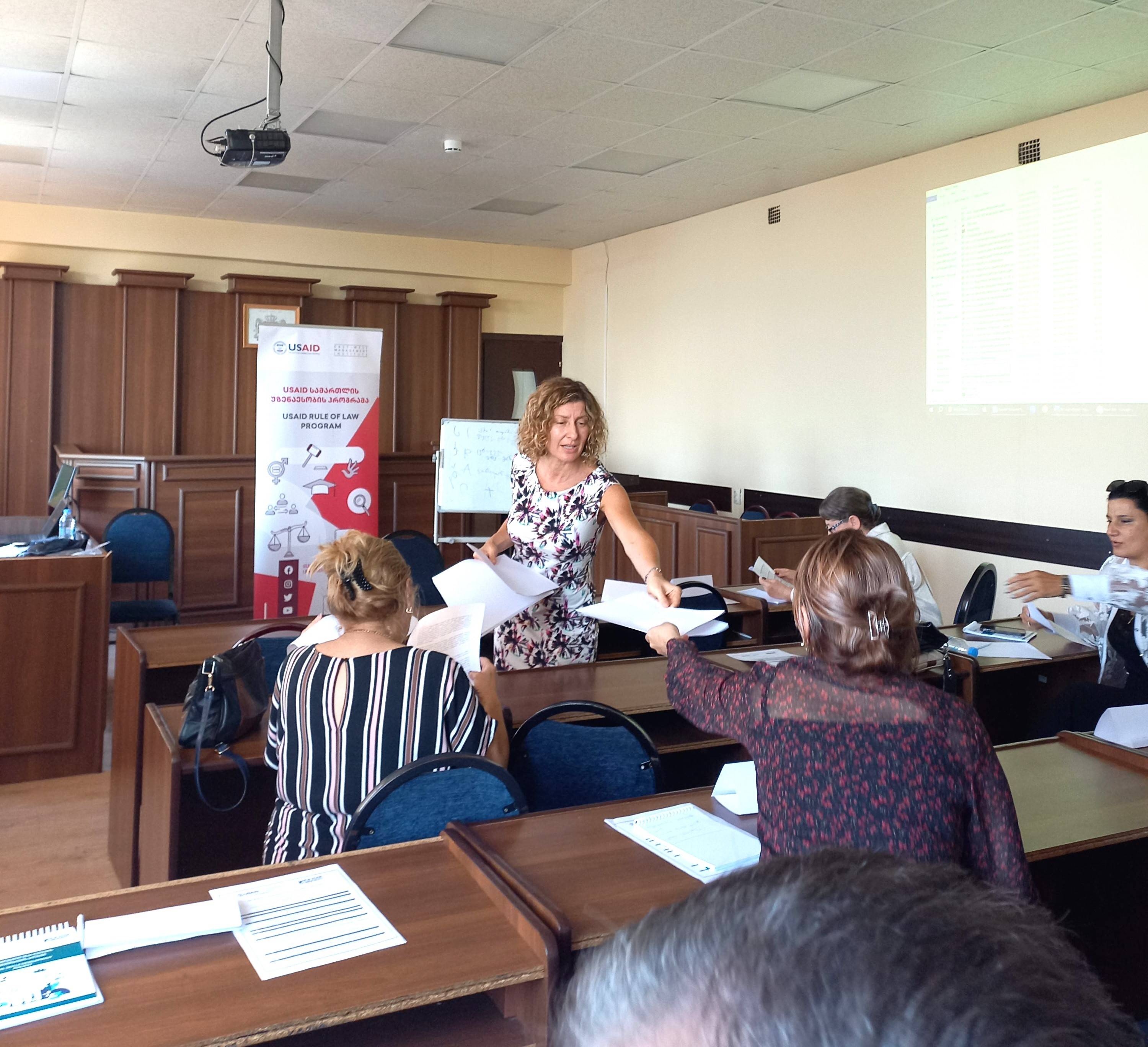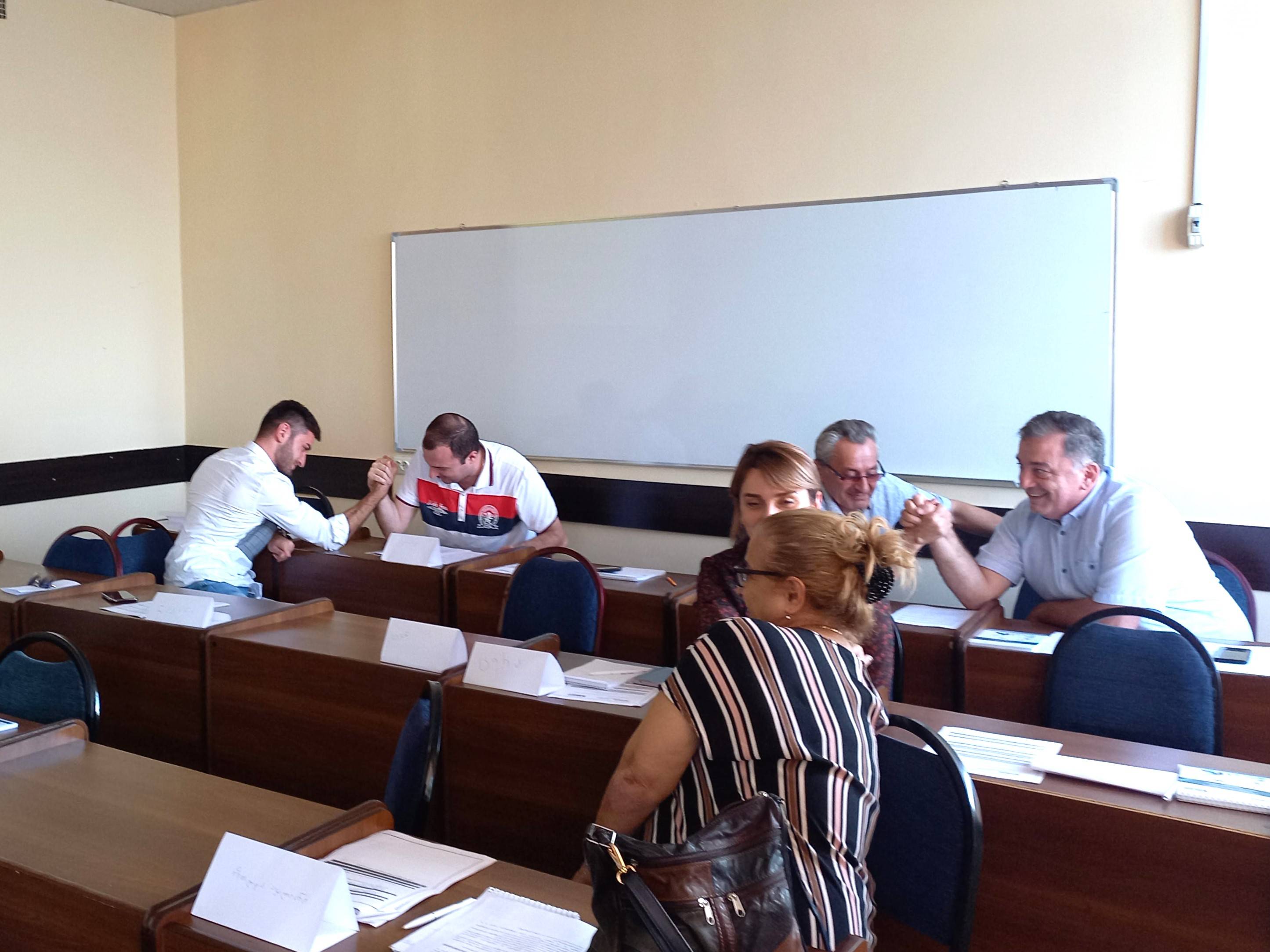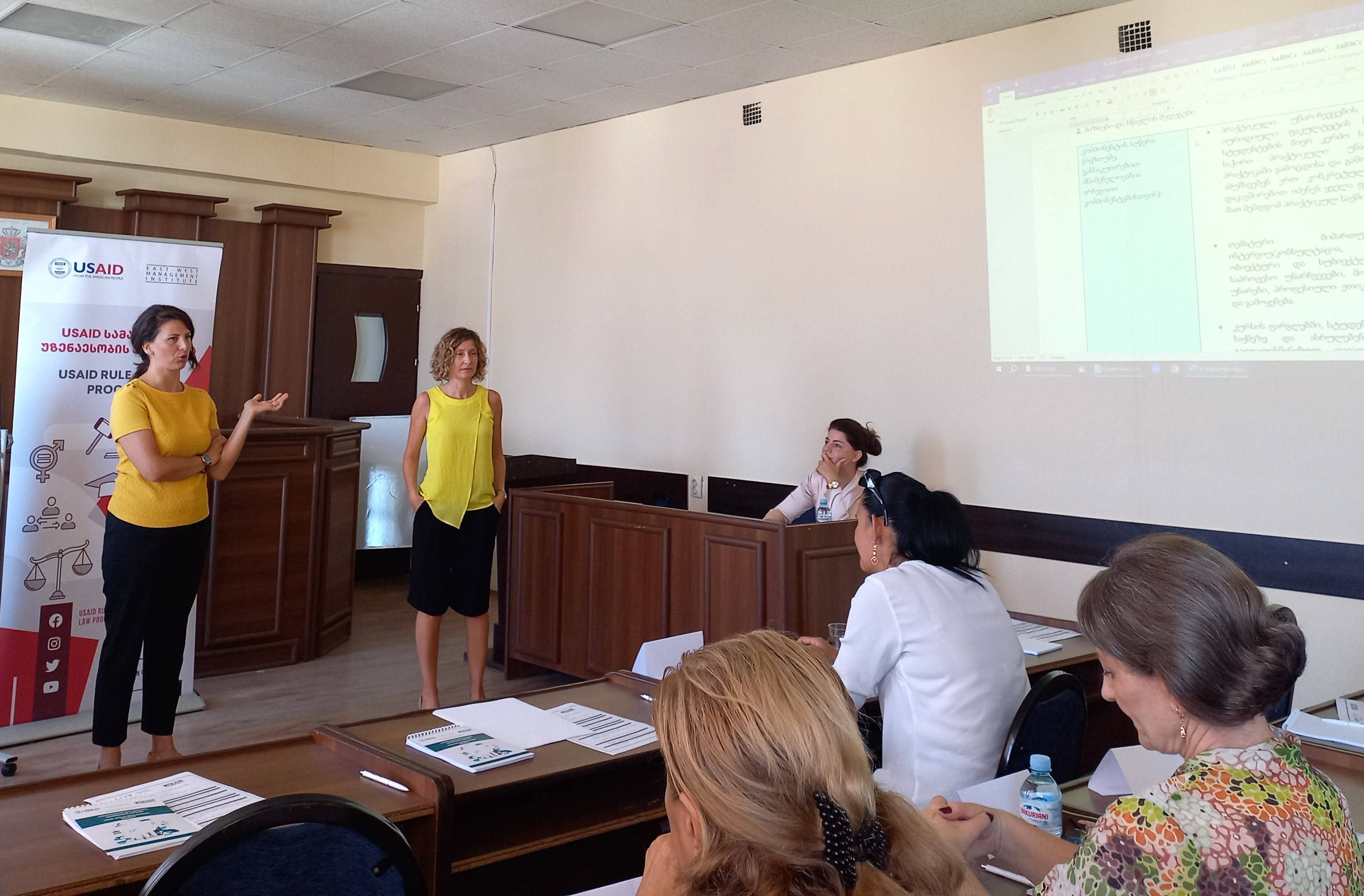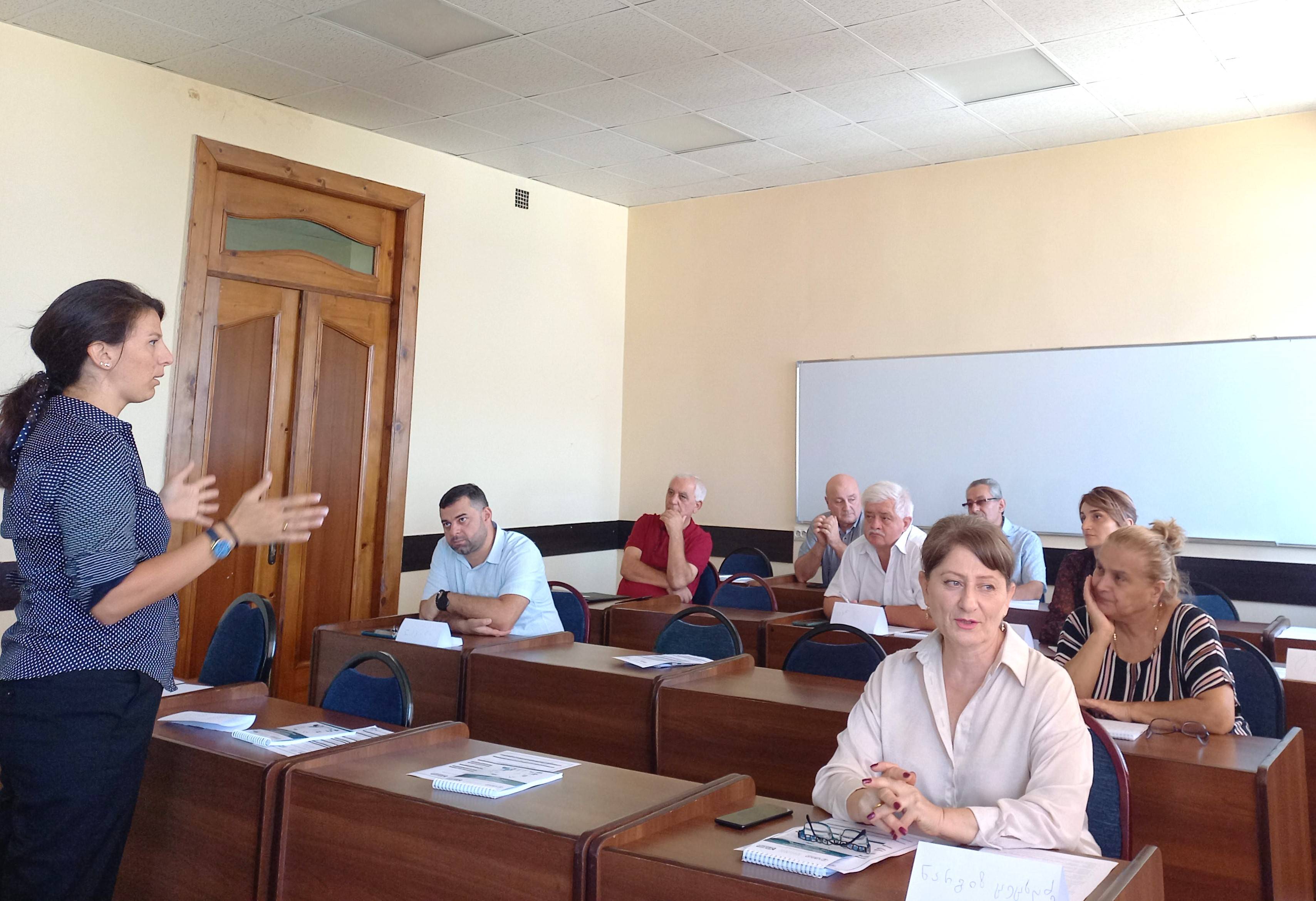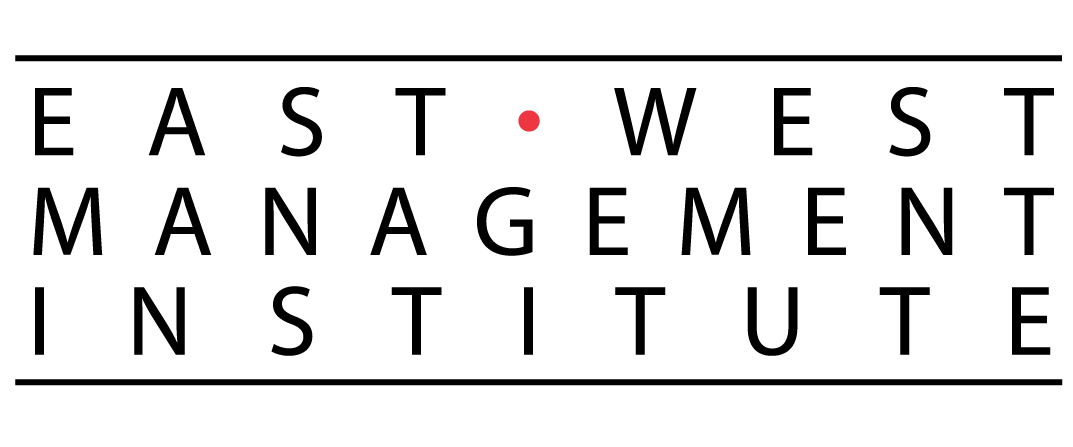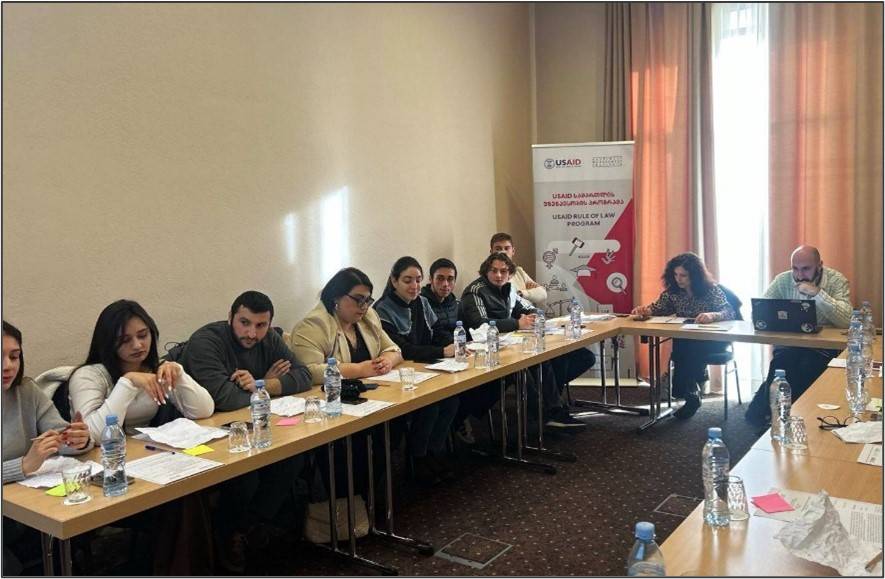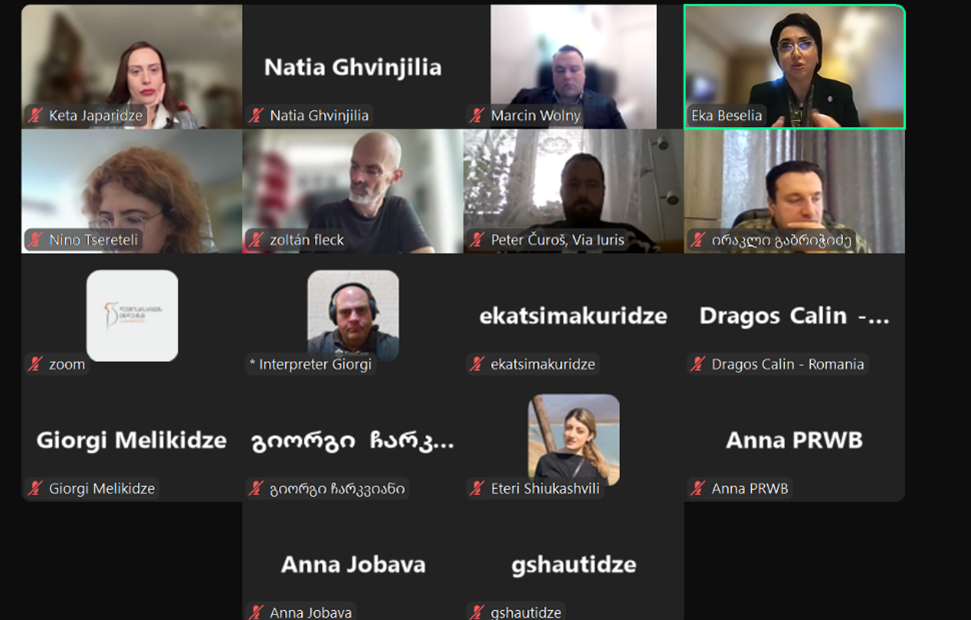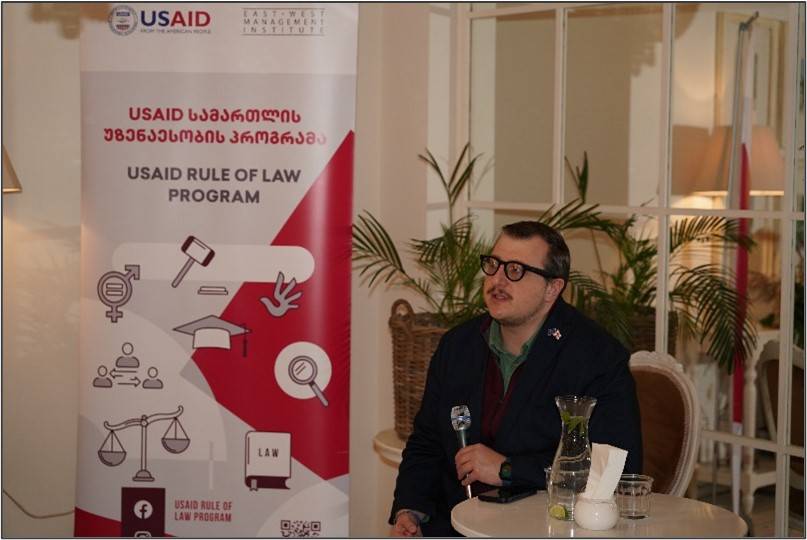Training of Trainers in Practical Legal Skills at Batumi State University Bolsters Collaboration and Innovative Teaching Methods
Training of Trainers in Practical Legal Skills took place at Batumi Shota Rustaveli State University, organized by New Vision University with support from the USAID Rule of Law Program.
The training was led by a team of experts from the Practical Skills Center at New Vision University, including Sophio Chachava, Ana Loria, Tamar Khatiashvili, and Natalia Akhaladze. Sixteen participants from Batumi State University and Grigol Robakidze University’s Batumi’s branch as well as Maritime Academy attended the event, including professors, guest lecturers, and heads of legal aid clinics, all of whom sought to enhance the teaching of practical skills at their law schools. Through our partnership with New Vision University, we are actively supporting legal education at regional law schools by providing training and resources to enhance the teaching of practical legal skills. This collaboration aims to empower educators and institutions, fostering a stronger foundation for legal education in underserved areas.
During the training, the experts shared the curriculum developed with USAID Rule of Law Program support. Learning materials were also distributed, designed to facilitate the instruction of legal research and writing, client interviewing, negotiation, mediation, procedural skills, and professional ethics for undergraduate students.
In addition, a workshop that focused on innovative teaching methods in law was conducted for 11 professors, guest lecturers, and clinical professors from practical law clinics and private law programs of the abovementioned law schools. The workshop fostered an interest in fostering deeper collaboration among law schools. Participants expressed enthusiasm for integrating clinical teaching, legal writing, and mock trial courses encompassing specific practical components into other subjects. They also showed a strong desire for continued cooperation in this endeavor.
Throughout the training, discussions revolved around how to incorporate practical skills components into seminars to work effectively, determining the optimal class size for practical work, and addressing challenges in assessing these components while ensuring equal participation from all attendees. Attendees exchanged their experiences and strategies for effectively dealing with these challenges.
